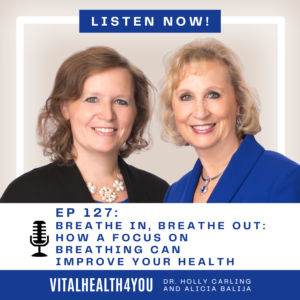Part I
As Americans are broadening around the middle, they are bulking up with the wrong kind of fat. There are several kinds of fats in the body, each with different functions. We are only now recognizing that not all fats are bad, most are very important, however, it’s the bad fats we seem to be filling out with.
Fat has three main functions: to store excess calories to be used at critical times, including to mobilize fat stores when you’re hungry; to help with temperature regulation; and to release hormones that control many functions in the body. In fact, fat is being classified as another endocrine “organ” due to its hormone-releasing actions.
There are 5 different types of fat: brown, white, visceral, subcutaneous and belly fat. Brown fat is the kind we’d like more of, but is in the smallest proportion relative to the other fats. Skinny people tend to have more brown fat than heavy people. Brown fat, when stimulated, burns calories. Two ounces of brown fat burns 300-500 calories per day. We’re still trying to figure out how to stimulate and to get more of it. The only thing we really know about it so far, is that it is stimulated by cold.
White fat stores energy and produces hormones, including one called adiponectin which helps with insulin sensitivity. When a person gets too fat, adiponectin slows down, making them more insulin resistant, which makes them get fatter.
Visceral fat wraps around the organs, protecting them from injury, and protecting from temperature extremes. Visceral fat also plays a role in insulin resistance, which is a risk factor for diabetes and cardiovascular disease.
Subcutaneous fat is found under the skin, in the thighs, buttocks and belly. It’s been found that fat in the thighs and buttocks is less dangerous than belly fat. Belly fat is both subcutaneous and visceral of the worst kind. Leptin, a hormone released by belly fat plays a role in appetite regulation, learning and memory. At menopause, fat moves from the thighs and hips to the belly, increasing the health risks.
Belly fat is the one we can control the most. Knowing what creates belly fat is the key to losing it. There are many reasons why we accumulate excess belly fat. Those will be discussed in Part II of The Skinny on Fats.
Part II
In Part I of The Skinny on Fats, we talked about the 5 different types of fat in the body, touching briefly on what kinds they are (white, brown, visceral, subcutaneous and belly fat), where they are stored, the basic functions (yes, we need fat and it is helpful to a point) and what kinds of body fats we need more of.
In part II we promised to discuss what creates belly fat – the worst kind – and what the keys are to losing it.
There are many reasons why we tend to accumulate excess belly fat (which is both visceral and white fats). It all starts with the mouth and the brain. How we eat, affects the brains response to what we eat. Most of us eat wrong. I’m not referring here to what wrong foods we eat (which is a whole topic in of itself), but the way in which we eat. The skinny on this topic is that if you eat fast, while stressed, or on the run, digestion is hampered.
What you eat, of course is also important. Our body needs an ample supply of minerals (from both animal and plant sources), protein (raw as well as cooked protein), fats (good essential fats), vitamins that are unadulterated, and all consumed in a balanced way. Deficiencies in any of these categories can result in the accumulation of undesirable fat on the body.
Obviously, diets high in sugar (evident sugars, simple carbohydrates, excess whole grain carbohydrates, and alcohol), high in bad fats (trans fats, fried foods, hydrogenated anything, vegetable oils, especially heated), junk foods in all categories and excess processed foods can all contribute to excess fat gain.
Digestive function is paramount. We need good effectiveness of the mouth, parotid (digestive enzymes in the mouth), stomach, liver, gallbladder, pancreas, and intestines (absorbability). We need a body that effectively gets our good nutrients from the food, into every cell of the body.
Hormonal balance and operation is essential. If we have reduced function of the thyroid, adrenals, pancreas (or any part of the blood-sugar handling mechanism), pituitary, liver, sex hormones or other hormones, we are more at risk for increasing our belly fat.
Environmental toxins also negatively affect our fat stores. Toxins from pesticides, herbicides, industrial pollutants, automotive pollutants, and any number of elements in our air, food, water, and even in our homes and work places, can store in fatty tissue. They can also affect hormonal balance, allergies and more. Detoxification is helpful here.
There are many other things that effect belly fat. Water intake, stress (a big factor), the amount and type of exercise, sleep quality and quantity, allergies (especially gluten intolerance), room temperature and several more. A skilled natural health care practitioner can help you dig deeply to discover the many underlying reasons WHY you are struggling with your weight and help you achieve lasting weight loss.
©2013 Holly A. Carling, O.M.D., L.Ac., Ph.D.







